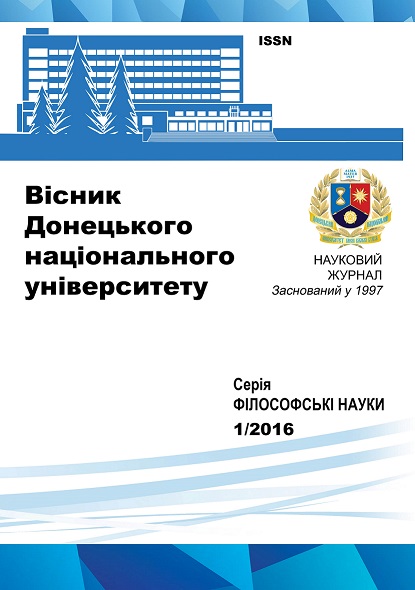The Phenomenon of a Book in the Context of PostGutenberg Era and the New Middle Ages.
Keywords:
book, post-Gutenberg era, electronic media, “Gutenberg Galaxy”, New Middle AgesAbstract
The article deals with the problem of place, role and way of existence of the phenomenon of a book in so-called post-Gutenberg era, in the context of the new electronic media challenge. This condition of contemporary culture naturally acquires some similarities with the pre-Gutenberg era. It can be interpreted in many ways, for example, as a “global village” new tribalism (Marshall McLuhan) or as a sign of the New Middle Ages (Umberto Eco). The electronic communication spread processes can not be evaluated unambiguously positive or negative, but there is no doubt that they can be seen as manifestations or even factors of critical transformations of the industrial and Modern era heritage that was largely constituted namely by Gutenberg’s invention. The transition to a post-industrial society, a crisis of hierarchical institutions established by Modern era and even post-Modern “death of the author” seem to be logically related to the deep and lasting sociocultural transformations caused by the attack of new electronic technologies “galaxy” on the “Gutenberg galaxy”. The intellectuals tend to believe that printed book will not disappear, but it rather going to become an attribute of an elite literary culture that will exist along with a ready image consumption culture, resembling a Medieval sociocultural situation. In turn of a catastrophic “probable Medieval future” (Roberto Vacca) scenario, a traditional book becomes fundamentally important in the context of the need to preserve a knowledge and a cultural heritage of the mankind. It is simple, relatively low-tech, independent of energy sources, specific and vulnerable hardware and software, and so it is in some way more reliable and durable than electronic media and devices.References
Мащенко О. П. Футурологія книги (Тези до дискусії) / О. П. Мащенко // Поліграфія і видавнича справа. – 2006. - № 43. – С. 51–53.
Гюго В. Собор Паризької Богоматері / В. Гюго; [пер. з фр. П. Тернюка]. – К.: Вища школа, 1981. – 464 c.
Duby G. Le Temps des cathédrales : l’art et la société (980 – 1420) / G. Duby. – Paris: Gallimard, 1976. – 379 p.
Мак-Люэн М. Галактика Гутенберга: Сотворение человека печатной культуры / М. Мак-Люэн; [пер. с англ. А. Юдина]. – К.: Ника-центр, 2004. – 432 с.
Емелин В. А. Гипертекст и постгутенберговая эра [Электронный ресурс] / В.А. Емелин. – Режим доступа: http://emeline.narod.ru/hipertext.htm
Эко У. От Интернета к Гутенбергу: текст и гипертекст [Электронный ресурс] / У. Эко. – Режим доступа: http://www.gumer.info/bibliotek_Buks/Culture/Eko/Int_Gutten.php
Эко У. Средние века уже начались / У. Эко; [пер. Е. Балаховской] // Иностр. лит. – 1994. – № 4. – C. 258–267.
Февр Л. Иконография и проповедь христианства // Бои за историю / Л. Февр; [пер. А. А. Бобовича, М. А. Бобовича и Ю. Н. Стефанова]. – М.: Наука, 1991. – С. 393–413.
Еко У. Не сподівайтеся позбутися книжок / Умберто Еко, Жан-Клод Кар’єр; [пер. з франц. І. Славінської]. – Львів: Видавництво Старого Лева, 2015. – 256 с.

